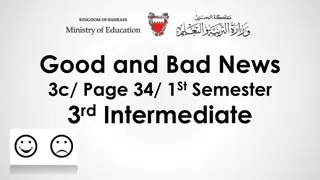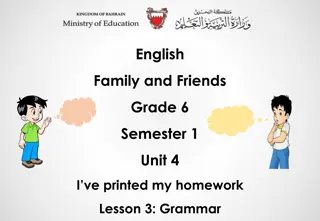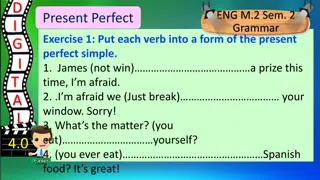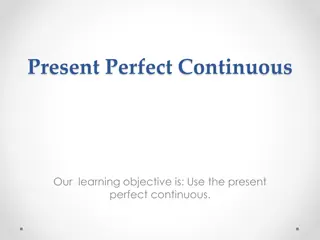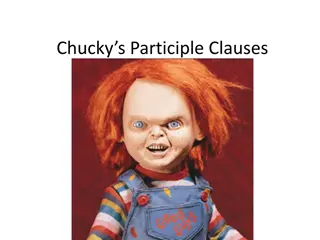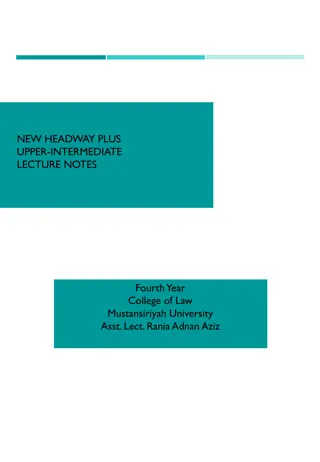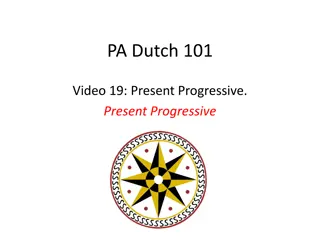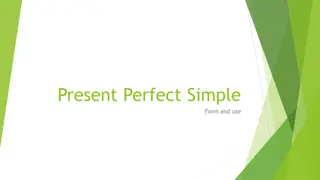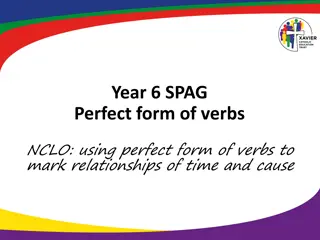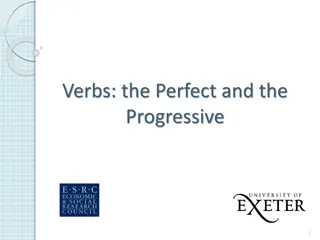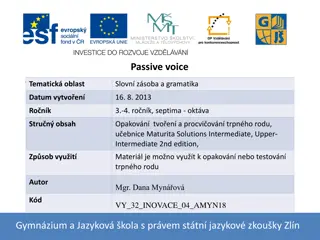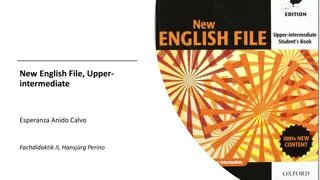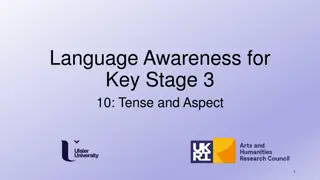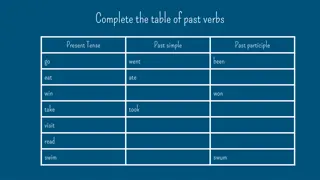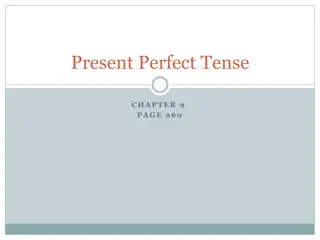
Understanding Present Perfect Tense in English Grammar
Explore the key differences between Present Perfect and Simple Past tenses. Learn when to use Present Perfect, how to form positive and negative sentences, ask questions, and express experiences and durations. Enhance your grasp of English grammar with practical examples and clear explanations.
Download Presentation

Please find below an Image/Link to download the presentation.
The content on the website is provided AS IS for your information and personal use only. It may not be sold, licensed, or shared on other websites without obtaining consent from the author. If you encounter any issues during the download, it is possible that the publisher has removed the file from their server.
You are allowed to download the files provided on this website for personal or commercial use, subject to the condition that they are used lawfully. All files are the property of their respective owners.
The content on the website is provided AS IS for your information and personal use only. It may not be sold, licensed, or shared on other websites without obtaining consent from the author.
E N D
Presentation Transcript
A: I haven't heard this album yet. Have you? B: Yes, I have. It's really good.
I You We They have breakfast today. two cups of coffee this morning. to many concerts. have not / haven't eaten had been He She It has has not / hasn't
I You We They Have breakfast today? two cups of coffee this morning? to many concerts? eaten had been He She It Has
The Present Perfect is used to connect the past with the present. It is used when we think about the past and present together:
Experience (Dont say the time): I have never visited France. We have never studied that. If you give specific past time, you need to use the simple past. Did you see the movie last week?
Duration (How Long): I have lived with a roommate for six months. Action is not finish. now
Duration (How Long): She plays the violin. For how long? She has played violin for many years. Action is not finish. now
Duration (completed actions): She lived with me for 2 years.
The Present Perfect isn't used if we are not thinking about the present:
We often use the Present Perfect with words that mean "at some time up to now" such as:
in the last / past few days never before ever so far yet lately already recently


